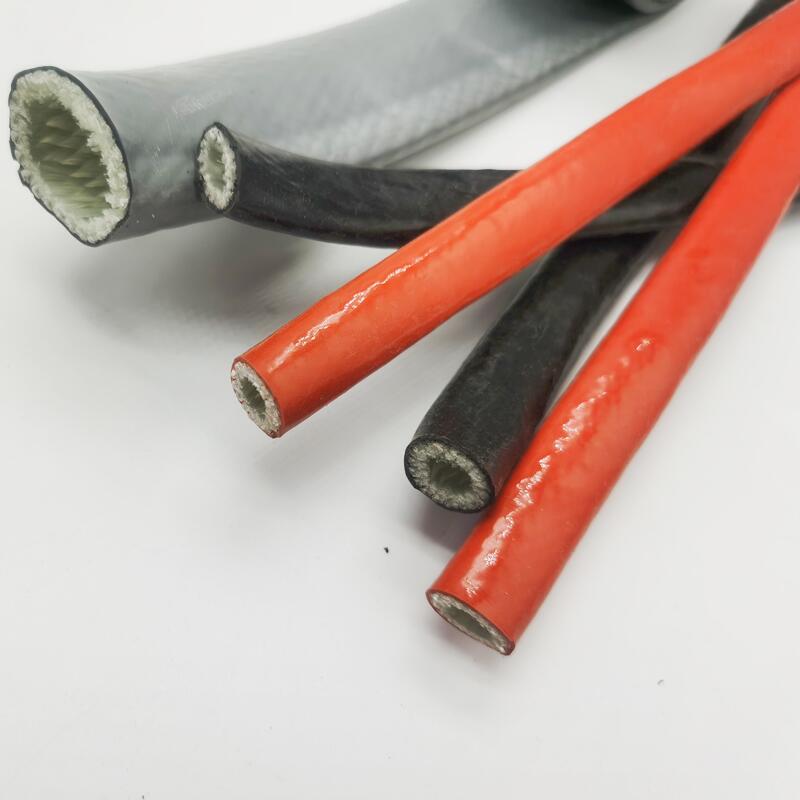Met siliconen beklede glasvezelslang is een veelzijdig materiaal dat de sterkte en hittebestendigheid van glasvezel combineert met de flexibiliteit en duurzaamheid van siliconen. De unieke eigenschappen maken het geschikt voor een breed scala aan toepassingen in diverse industrieën. Hier is een gestructureerd overzicht van de belangrijkste toepassingen:
Omgevingen met hoge temperaturen : Beschermt draden, kabels en componenten in motoren, transformatoren en generatoren tegen hitte en elektrische vonken.
Diëlektrische bescherming :Wordt gebruikt in elektrische systemen in de lucht- en ruimtevaart en auto's om kortsluiting te voorkomen door gebruik te maken van de diëlektrische sterkte.
Hitteschild :In toepassingen in de automobiel- en ruimtevaartsector isoleert het uitlaatsystemen, motorcompartimenten en onderdelen van straalmotoren.
Industriële verwarmingssystemen : Isoleert verwarmingselementen, ovens en boilers en beschermt thermokoppels of sensoren bij hoge temperaturen.
Flexibele omhulling : Beschermt slangen, kabels en hydraulische leidingen in robotica of machines tegen slijtage, snijwonden en slijtage.
Lassen en gieterijen : Beschermt apparatuur tegen vonken, spetters gesmolten metaal en extreme hitte.
Zware omgevingen : Wordt gebruikt in chemische fabrieken, maritieme omgevingen en buitentoepassingen waarbij bestendigheid tegen vocht, UV-straling en corrosieve stoffen van cruciaal belang is.
Voedsel en farmacie :Voedselveilige siliconenvarianten kunnen verwerkingsapparatuur beschermen, maar komen minder vaak voor.
Brandwerende mouwen : Geïntegreerd in branddekens, brandbestrijdingsuitrusting en noodsystemen om vlammen en hoge temperaturen te weerstaan.
Overdracht van hete vloeistof :Productlijnen in de chemische verwerkings- of olie-/gasindustrie waar hitte- en chemische bestendigheid nodig is.
Uitzetvoegen : Vangt thermische uitzetting in leidingsystemen op zonder degradatie.
Apparaten : Isoleert haardrogers, verwarmingen en ovens.
Laboratoriumapparatuur : Beschermt instrumenten die worden blootgesteld aan hoge temperaturen of bijtende stoffen.
Hoge temperatuurbestendigheid (tot 500°F/260°C of hoger).
Flexibiliteit en duurzaamheid : Behoudt zijn integriteit bij beweging of trillingen.
Chemische/weersbestendigheid : Bestand tegen zuren, oplosmiddelen, UV-straling en vocht.
Diëlektrische sterkte : Geschikt voor hoogspanningsisolatie.
Automobielsector, lucht- en ruimtevaart, productie, energie, bouw en elektronica.
Deze slangen worden vaak gekozen voor veeleisende toepassingen waar goedkopere materialen tekortschieten, en zorgen voor veiligheid en een lange levensduur, zelfs onder extreme omstandigheden.
